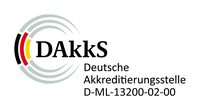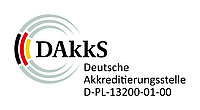Sie befinden sich hier
Inhalt
Interaction of innate immune cells and pathology
The innate immune systems recognizes invading pathogens via pattern recognition receptors, which induce an antimicrobial response to control the pathogen. The Institute of Medical Microbiology and Hygiene investigates the host pathogen interaction and explores molecular mechanisms how diverse pathogens such as uropathogenic Escherichia coli, Chlamydia trachomatis and Measles virus subvert the innate immune system. We analyze the function of pattern recognition receptors during an infection with these microorganisms and identify virulence factors of the microorganisms, which modify the signaling of these receptors. Further, we identify molecules of the host, which are manipulated by the virulence factors. We explore the advantage of this manipulation for the pathogen and the circumstances, which allow pathogens to produce these virulence factors. Thus, our research explores the interface between host and pathogen and the extent and effect of inflammation during an infection.

Key publications
Müller T, Becker E, Stallmann S, Waldhuber A, Römmler-Dreher F, Albrecht S, Mohr F, Hegemann JH, Miethke T. Vaccination with the polymorphic membrane protein A reduces Chlamydia muridarum induced genital tract pathology. Vaccine. 2017; 35:2801-2810.
Waldhuber A, Puthia M, Wieser A, Cirl C, Dürr S, Neumann-Pfeifer S, Albrecht S, Römmler F, Müller T, Zheng Y, Schubert S, Groß O, Svanborg C, Miethke T. Uropathogenic Escherichia coli strain CFT073 disrupts NLRP3 inflammasome activation. J Clin Invest. 2016; 126:2425-36.
Cirl C, Wieser A, Yadav M, Duerr S, Schubert S, Fischer H, Stappert D, Wantia N, Rodriguez N, Wagner H, Svanborg C, Miethke T. Subversion of Toll-like receptor signaling by a unique family of bacterial Toll/interleukin-1 receptor domain-containing proteins. Nat Med. 2008; 14:399-406.
Kontextspalte
Head

Univ. Prof. Dr. med. Thomas Miethke
Phone +49 0621/383-2513
thomas.miethke@medma.uni-heidelberg.de
Contact
Secretariat
Phone +49 0621/383-2224
Fax +49 0621/383-3816
sekretariat-immh@umm.de
Universitätsmedizin Mannheim
Theodor-Kutzer-Ufer 1-3
68167 Mannheim


